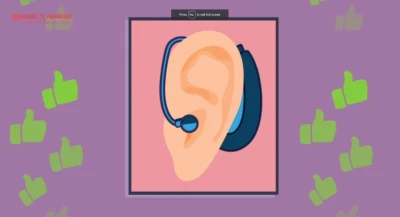Tinnitus
Understanding Tinnitus
Tinnitus is a condition that involves the perception of sound in the ears or head without any external source. It often sounds like a ringing, buzzing, hissing, or roaring sound. Tinnitus can vary in intensity and frequency. Some people hear tinnitus all the time, while for others it comes and goes.
What Are the Symptoms of Tinnitus?
 The symptoms of tinnitus can be different for everyone. Tinnitus is characterized by the perceived sound of ringing, buzzing, hissing, or other noises that originate within the ears or head. The sound can be constant or intermittent. Tinnitus sounds can range from soft to loud, and they may fluctuate in volume. The pitch of the sound can also vary, with some experiencing low-pitched sounds while others hear high-pitched tones.
The symptoms of tinnitus can be different for everyone. Tinnitus is characterized by the perceived sound of ringing, buzzing, hissing, or other noises that originate within the ears or head. The sound can be constant or intermittent. Tinnitus sounds can range from soft to loud, and they may fluctuate in volume. The pitch of the sound can also vary, with some experiencing low-pitched sounds while others hear high-pitched tones.
Tinnitus can interfere with concentration, sleep patterns, and emotional well-being. It may also lead to anxiety, irritability, stress, and difficulty focusing on tasks.
What Causes Tinnitus?
Tinnitus can have various underlying causes:
Exposure to loud noise
Prolonged exposure to loud noise, whether from occupational noise or recreational activities like attending concerts, can damage the delicate structures of the inner ear and lead to tinnitus.
Age-related hearing loss
As individuals age, the cells within the inner ear can deteriorate, leading to hearing loss. This can result in the perception of tinnitus.
Earwax blockage
The accumulation of earwax can obstruct the ear canal, leading to tinnitus symptoms.
Certain medical conditions
Tinnitus can also be caused by conditions such as Meniere’s disease, temporomandibular joint (TMJ) disorders, and vascular disorders.
Medications or ototoxic substances
Some medications and chemicals can have ototoxic effects and contribute to tinnitus.
How Is Tinnitus Diagnosed?
Diagnosing tinnitus involves a comprehensive evaluation to determine the cause and impact of the condition. We can help diagnose tinnitus:
Medical history review
A detailed medical history helps identify potential causes or contributing factors to tinnitus, such as noise exposure, medications, or underlying health conditions.
Physical examination
An examination of the ears, head, neck, and neurological system can identify any physical abnormalities or signs of an underlying condition.
Hearing tests
Audiometric evaluations can assess hearing ability and determine if there is any associated hearing loss. This may include pure-tone audiometry, speech audiometry, and tympanometry.
Additional tests
In some cases, additional tests like imaging studies (MRI or CT scans) or blood tests may be recommended to identify underlying conditions related to tinnitus.
What Treatments Can Help Tinnitus?
 Tinnitus management depends on the underlying cause and the impact it has on an individual's quality of life.
Tinnitus management depends on the underlying cause and the impact it has on an individual's quality of life.
Sound therapy
Sound therapy aims to mask or reduce the perception of tinnitus by introducing external sounds. This will mask tinnitus sounds and take attention away from the internal sounds. Devices like white noise machines or smartphone apps that play soothing sounds can be used.
Hearing Aids and Tinnitus Management
 Hearing aids can be a game changer when it comes to managing tinnitus. Many modern hearing aids offer specialized tinnitus management programs and features like built-in sound therapy. These programs provide soothing sounds that can be customized to the exact pitch and tone of your tinnitus. This helps reduce the perception and annoyance of tinnitus.
Hearing aids can be a game changer when it comes to managing tinnitus. Many modern hearing aids offer specialized tinnitus management programs and features like built-in sound therapy. These programs provide soothing sounds that can be customized to the exact pitch and tone of your tinnitus. This helps reduce the perception and annoyance of tinnitus.

At Wise Hearing...
Our experienced hearing health professionals understand the impact of tinnitus on individuals' quality of life. We offer comprehensive evaluations to assess tinnitus and hearing needs, and we’ll tailor treatment plans to address both concerns. Our wide range of hearing aids includes models with advanced sound therapy features to help you find relief and regain control of your hearing health. Call your nearest office for an appointment or to learn more.


